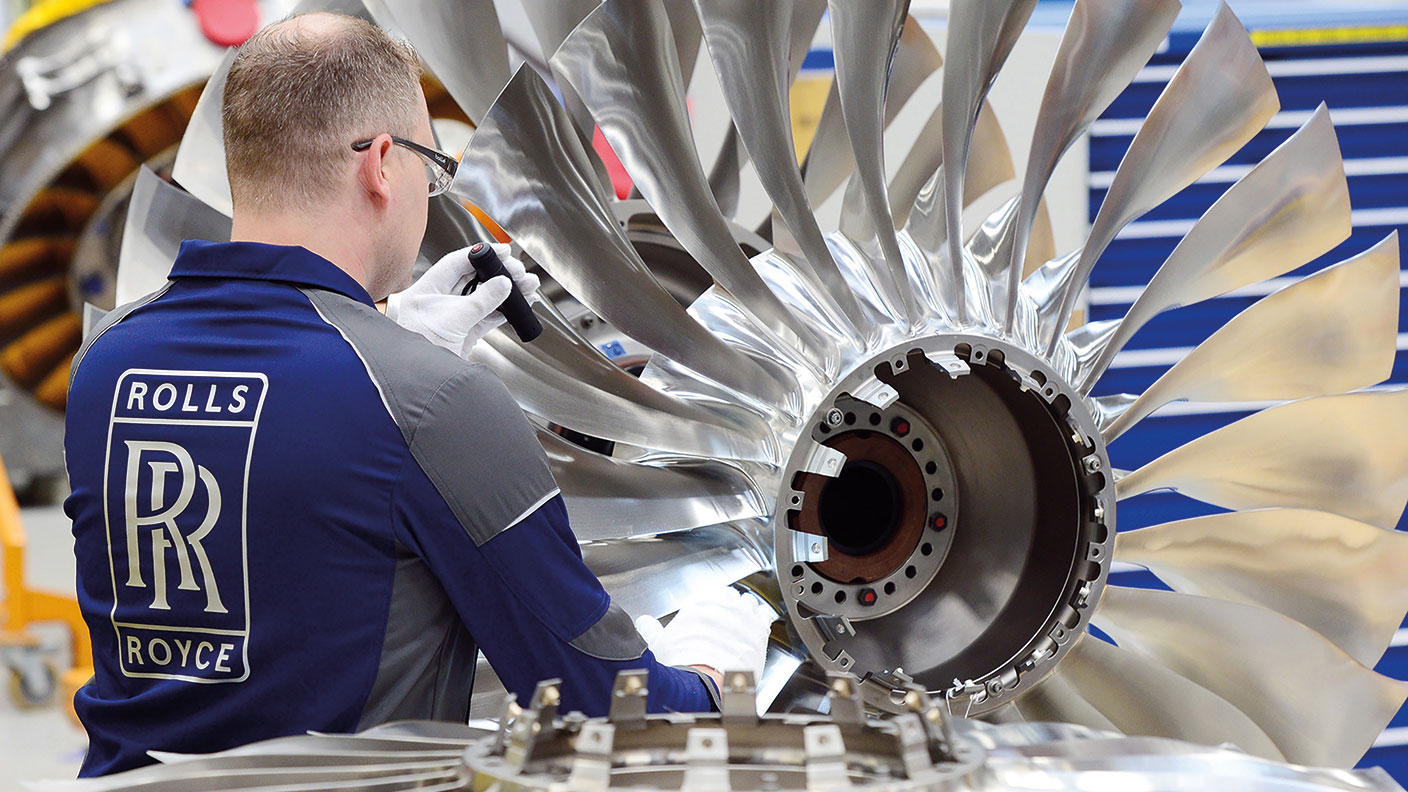Rolls-Royce falls to huge loss
Aero-engine maker Rolls-Royce recorded a £5.4bn half-year loss as the collapse in air travel wiped out demand for its engines.


Get the latest financial news, insights and expert analysis from our award-winning MoneyWeek team, to help you understand what really matters when it comes to your finances.
You are now subscribed
Your newsletter sign-up was successful
Want to add more newsletters?
Last week Rolls-Royce warned that its future “could be at risk” after it plunged to a record £5.4bn half-year loss, says Simon Foy in The Daily Telegraph. It says the collapse in air travel has crushed demand for its engines. So it has signalled its intention to raise £2bn from asset sales, including its ITP Aero division, which makes turbine blades for jet engines.
Meanwhile, the firm’s chief financial officer, Stephen Daintith, is leaving to join online grocer Ocado. Daintith’s move looks “rational” given the “ugly” short-term outlook, says Nils Pratley in The Guardian. What’s more, Rolls-Royce’s stock has fallen to a near-ten year low while its debt is “rated as junk”.
Still, it shouldn’t panic just yet. Not only can it sell assets, but it also “still has some room to borrow”. So while the firm’s share price remains“hostage to Covid-19 infections”, and shareholders may be forced to contribute in the form of a rights issue, the group is likely to “muddle through”.
Try 6 free issues of MoneyWeek today
Get unparalleled financial insight, analysis and expert opinion you can profit from.

Sign up to Money Morning
Don't miss the latest investment and personal finances news, market analysis, plus money-saving tips with our free twice-daily newsletter
Don't miss the latest investment and personal finances news, market analysis, plus money-saving tips with our free twice-daily newsletter
An immediate rights issue might be a better option than selling off key assets, says Ed Cropley on Breakingviews. Asset sales may please creditors, but they will leave the company with a “permanent limp”. As far as ITP Aero is concerned, there is unlikely to be a “seller’s market” for an asset whose operating profit slid by more than two-thirds in the last six months. “And in terms of corporate synergies, losing a maker of jet-engine turbines inside a maker of jet engines sounds very unhelpful.” Selling the family silver “only works if you’ve got something else to eat of
Get the latest financial news, insights and expert analysis from our award-winning MoneyWeek team, to help you understand what really matters when it comes to your finances.

-
 Do you face ‘double whammy’ inheritance tax blow? How to lessen the impact
Do you face ‘double whammy’ inheritance tax blow? How to lessen the impactFrozen tax thresholds and pensions falling within the scope of inheritance tax will drag thousands more estates into losing their residence nil-rate band, analysis suggests
-
 Has the market misjudged Relx?
Has the market misjudged Relx?Relx shares fell on fears that AI was about to eat its lunch, but the firm remains well placed to thrive
-
 Has the market misjudged Relx?
Has the market misjudged Relx?Relx shares fell on fears that AI was about to eat its lunch, but the firm remains well placed to thrive
-
 8 of the best properties for sale with minstrels’ galleries
8 of the best properties for sale with minstrels’ galleriesThe best properties for sale with minstrels’ galleries – from a 15th-century house in Kent, to a four-storey house in Hampstead, comprising part of a converted, Grade II-listed former library
-
 The rare books which are selling for thousands
The rare books which are selling for thousandsRare books have been given a boost by the film Wuthering Heights. So how much are they really selling for?
-
 How to invest as the shine wears off consumer brands
How to invest as the shine wears off consumer brandsConsumer brands no longer impress with their labels. Customers just want what works at a bargain price. That’s a problem for the industry giants, says Jamie Ward
-
 A niche way to diversify your exposure to the AI boom
A niche way to diversify your exposure to the AI boomThe AI boom is still dominating markets, but specialist strategies can help diversify your risks
-
 New PM Sanae Takaichi has a mandate and a plan to boost Japan's economy
New PM Sanae Takaichi has a mandate and a plan to boost Japan's economyOpinion Markets applauded new prime minister Sanae Takaichi’s victory – and Japan's economy and stockmarket have further to climb, says Merryn Somerset Webb
-
 Early signs of the AI apocalypse?
Early signs of the AI apocalypse?Uncertainty is rife as investors question what the impact of AI will be.
-
 8 of the best properties for sale with beautiful kitchens
8 of the best properties for sale with beautiful kitchensThe best properties for sale with beautiful kitchens – from a Modernist house moments from the River Thames in Chiswick, to a 19th-century Italian house in Florence